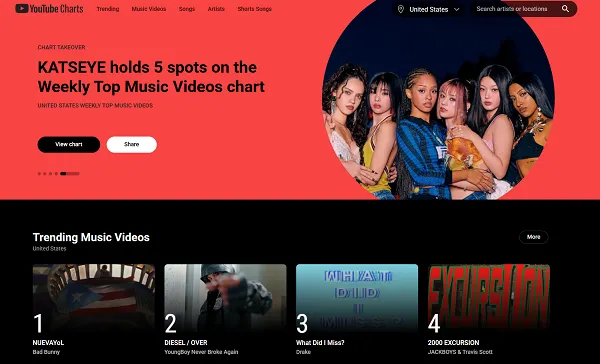What Does Google’s New ‘Helpful Content’ Algorithm Mean for Brands?
In August Google rolled out its ‘helpful content’ algorithm, an update to its search process designed to boost content written for people, while at the same time devaluing content written primarily for SEO. According to an announcement on Twitter...

In August Google rolled out its ‘helpful content’ algorithm, an update to its search process designed to boost content written for people, while at the same time devaluing content written primarily for SEO.
According to an announcement on Twitter the week before the rollout, the update would ‘ensure people see more original, helpful content written by people, for people, rather than content made primarily for search engine traffic.’ Significantly, while product review updates in the past had targeted only specific types of page, the ‘helpful content’ update has been sitewide. The implications were, and still are, huge—because this change to the algorithm has the potential to impact all pages.
What Have Been Some of the Implications of the Update?
According to Google:
Any content—not just unhelpful content—on sites determined to have relatively high amounts of unhelpful content overall is less likely to perform well in Search, assuming there is other content elsewhere from the web that’s better to display. For this reason, removing unhelpful content could help the rankings of your other content.
In other words, the update has introduced a whole new ranking signal to negatively score sites that publish a high volume of either low-value content or content that’s deemed otherwise unhelpful to searchers.
While Google did give a nominal heads-up regarding the changes to its search algorithm, a week was really no time at all in which to prepare. Businesses spanning every sector and every industry scrambled to clean up their websites and purge ‘unhelpful content’ where possible. The stress was palpable. But that being said, one certainly might argue on the flipside that every website should always have just been written for humans in the first place, as opposed to for SEO. Although of course as the competition on the digital landscape has grown to be more intensive than ever before, that’s not always how things have played out in reality.
Could Google’s Helpful Content Update Impact Your Business?
If it sounds like you run precisely the kind of website packed with so-called ‘unhelpful content’ that Google has warned about, there’s no need to worry too much—the tech giant recommends simply removing it from your website. In theory at least that should be enough to improve your search value, thereby boosting you up the search engine results page (SERP) back to the prime position you need to be in to be seen by users far and wide, by customers old and new, who will only even consider clicking through to your website if you rank alongside reputable competitors. A number of new clients at my own performance marketing and web design agency, Pixated, experienced this firsthand, having come on board in the wake of the August update but for one reason or another having also been either unsure of its implications or unaware that it had been rolled out in the first place.
That being said, it’s worth noting that if you’re only finding out about the ‘helpful content’ algorithm now and reacting accordingly by removing low-quality content from your website, it might take as long as several months to feel the benefit. That’s because Google isn’t continuously monitoring the overall quality of the content on your website, but rather conducts ‘crawls’, during which its Search faculties return periodically to your site to assess any changes to its usability and usefulness since the last time it visited. Google then adjusts your position in its search rankings.
The tech giant goes on to note that Google Search monitors both ‘newly launched websites and existing ones, and as it determines that the unhelpful content has not returned in the long term, the classification of the website as being of low quality will no longer apply.’

 Konoly
Konoly 




















![Run An Ecommerce SEO Audit in 4 Stages [+ Free Workbook]](https://api.backlinko.com/app/uploads/2025/06/ecommerce-seo-audit-featured-image.png)













